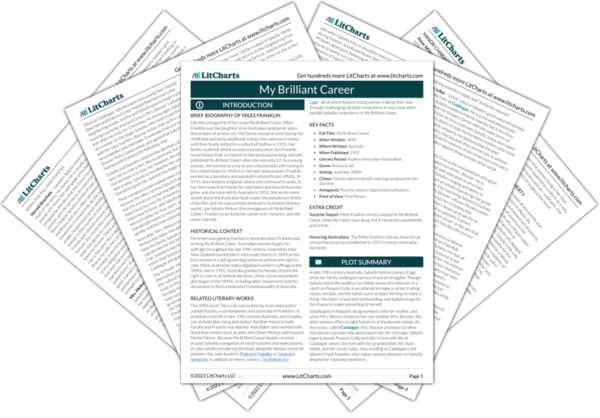Sybylla again distinguishes herself from other (more respectable) women by acknowledging that her actions are not those of a “heroine.” She is extensively well-read, and she knows the behavior her readers are accustomed to in their protagonists. Nevertheless, Sybylla is writing her own story, and she represents herself as a real person rather than an idealized heroine. Helen’s concern about a romance between Everard and Sybylla likely stems from her own tragic experiences with romance, and her desire that Sybylla avoid cynicism repeats the notion that a woman should not be a pessimist. Meanwhile, Everard’s ready willingness to marry Sybylla demonstrates his own youthful impulsiveness, but also his perspective of marriage as a tool to manage social status.
